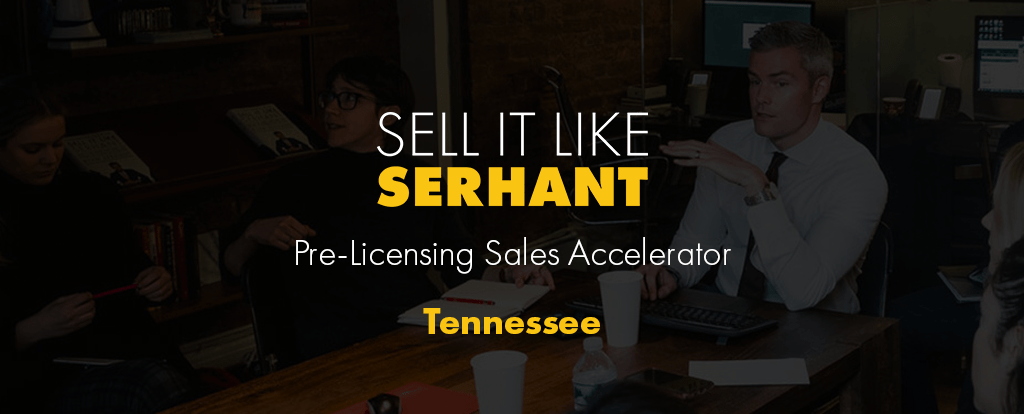
Whether you're looking to start your own real estate business or just get a new job in the industry, becoming a licensed broker is a great way to take control of your career and set yourself apart from other workers in the field. In this article, we'll discuss how to become a real estate broker in Virginia and the requirements you need to meet before obtaining your license.
How to Become a Real Estate Broker in Virginia
Pre-licensing education is required in order to become a licensed broker. These courses can either be taken online, in person, or at your own pace. You have many options to gain the necessary skills to succeed.
Virginia requires you to complete 60 hours of prelicense coursework. This can be done in an online classroom or in a traditional classroom. The courses must cover real estate law, property and finance as well as brokerage.

A national and state exam covering real estate law principles and practices must be passed. These exams are available through PSI and cost $60.
Reciprocity
If you're a current salesperson or broker from another state, you can apply for a reciprocal real estate broker license in Virginia by completing 180 hours of Board-approved broker pre-license courses and passing your Virginia state exam. You don't need to have pre-license credits from your home state. The VA Real Estate Board offers additional 45-hour courses offered by a variety of providers.
How to Become A Broker in Virginia
You must be at least 18 years of age, possess a high school diploma, or GED certificate, and have been working in real estate full time (average 40 hours per weeks) for 36 months. You must also pass a background check and pay the required licensing fee.
How to Become A Salesperson in Virginia
First, you will need to complete the 60-hour real estate pre-license course in Virginia and then pass your exam. You'll also need to submit your fingerprints for a background check and pay the licensing fee.

It is easy to obtain your Virginia real estate license if you follow the right steps. It may take only a few weeks for an experienced agent who has been in the industry for some time to complete all requirements.
How to become an agent in Virginia
After you have passed the VA real-estate exam and completed all pre-licensing education required, you'll need to locate a sponsoring brokers for your new licensing. The broker will sign off your application and ensure that you are licensed correctly.
Your application for a Broker's license must be submitted along with your Salesperson Certificate and the required licensing fee. Within a few more weeks, you will receive your new licence.
FAQ
How many times may I refinance my home mortgage?
It depends on whether you're refinancing with another lender, or using a broker to help you find a mortgage. In either case, you can usually refinance once every five years.
What is reverse mortgage?
Reverse mortgages allow you to borrow money without having to place any equity in your property. This reverse mortgage allows you to take out funds from your home's equity and still live there. There are two types: conventional and government-insured (FHA). A conventional reverse mortgage requires that you repay the entire amount borrowed, plus an origination fee. If you choose FHA insurance, the repayment is covered by the federal government.
Should I buy or rent a condo in the city?
Renting is a great option if you are only planning to live in your condo for a short time. Renting will allow you to avoid the monthly maintenance fees and other charges. The condo you buy gives you the right to use the unit. The space can be used as you wish.
How long does it take to get a mortgage approved?
It depends on several factors such as credit score, income level, type of loan, etc. It generally takes about 30 days to get your mortgage approved.
Can I buy a house without having a down payment?
Yes! Yes. There are programs that will allow those with small cash reserves to purchase a home. These programs include FHA, VA loans or USDA loans as well conventional mortgages. Visit our website for more information.
Statistics
- This means that all of your housing-related expenses each month do not exceed 43% of your monthly income. (fortunebuilders.com)
- This seems to be a more popular trend as the U.S. Census Bureau reports the homeownership rate was around 65% last year. (fortunebuilders.com)
- The FHA sets its desirable debt-to-income ratio at 43%. (fortunebuilders.com)
- Based on your credit scores and other financial details, your lender offers you a 3.5% interest rate on loan. (investopedia.com)
- When it came to buying a home in 2015, experts predicted that mortgage rates would surpass five percent, yet interest rates remained below four percent. (fortunebuilders.com)
External Links
How To
How to Manage A Rental Property
It can be a great way for you to make extra income, but there are many things to consider before you rent your house. We'll show you what to consider when deciding whether to rent your home and give you tips on managing a rental property.
Here are the basics to help you start thinking about renting out a home.
-
What do I need to consider first? Before you decide if you want to rent out your house, take a look at your finances. If you have any debts such as credit card or mortgage bills, you might not be able pay for someone to live in the home while you are away. Also, you should review your budget to see if there is enough money to pay your monthly expenses (rent and utilities, insurance, etc. This might be a waste of money.
-
How much will it cost to rent my house? There are many factors that influence the price you might charge for renting out your home. These include things like location, size, features, condition, and even the season. Prices vary depending on where you live so it's important that you don't expect the same rates everywhere. Rightmove has found that the average rent price for a London one-bedroom apartment is PS1,400 per mo. This would translate into a total of PS2,800 per calendar year if you rented your entire home. While this isn't bad, if only you wanted to rent out a small portion of your house, you could make much more.
-
Is it worth the risk? Doing something new always comes with risks, but if it brings in extra income, why wouldn't you try it? Before you sign anything, though, make sure you understand exactly what you're getting yourself into. You will need to pay maintenance costs, make repairs, and maintain the home. Renting your house is not just about spending more time with your family. You should make sure that you have thoroughly considered all aspects before you sign on!
-
What are the benefits? Now that you have an idea of the cost to rent your home, and are confident it is worth it, it is time to consider the benefits. There are plenty of reasons to rent out your home: you could use the money to pay off debt, invest in a holiday, save for a rainy day, or simply enjoy having a break from your everyday life. Whatever you choose, it's likely to be better than working every day. You could make renting a part-time job if you plan ahead.
-
How do you find tenants? After you have decided to rent your property, you will need to properly advertise it. Start by listing online using websites like Zoopla and Rightmove. You will need to interview potential tenants once they contact you. This will help you evaluate their suitability as well as ensure that they are financially secure enough to live in your home.
-
How can I make sure that I'm protected? If you're worried about leaving your home empty, you'll need to ensure you're fully protected against damage, theft, or fire. In order to protect your home, you will need to either insure it through your landlord or directly with an insured. Your landlord will often require you to add them to your policy as an additional insured. This means that they'll pay for damages to your property while you're not there. If your landlord is not registered with UK insurers, or you are living abroad, this policy doesn't apply. In this case, you'll need to register with an international insurer.
-
Even if your job is outside the home, you might feel you cannot afford to spend too much time looking for tenants. Your property should be advertised with professionalism. A professional-looking website is essential. You can also post ads online in local newspapers or magazines. Also, you will need to complete an application form and provide references. While some people prefer to handle everything themselves, others hire agents who can take care of most of the legwork. You'll need to be ready to answer questions during interviews.
-
What do I do when I find my tenant. You will need to notify your tenant about any changes you make, such as changing moving dates, if you have a lease. Otherwise, you can negotiate the length of stay, deposit, and other details. While you might get paid when the tenancy is over, utilities are still a cost that must be paid.
-
How do I collect rent? When the time comes for you to collect the rent you need to make sure that your tenant has been paying their rent. If your tenant has not paid, you will need to remind them. You can subtract any outstanding rent payments before sending them a final check. If you're having difficulty getting hold of your tenant you can always call police. They will not usually evict someone unless they have a breached the contract. But, they can issue a warrant if necessary.
-
What are the best ways to avoid problems? It can be very lucrative to rent out your home, but it is important to protect yourself. Install smoke alarms, carbon monoxide detectors, and security cameras. Make sure your neighbors have given you permission to leave your property unlocked overnight and that you have enough insurance. You should never allow strangers into your home, no matter how they claim to be moving in.